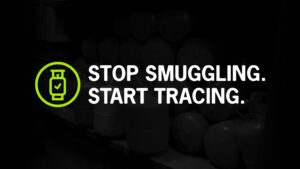ILLEGAL TRADE ROUND-UP MAY 2020
In this round-up: Investigative study, commissioned by EFCTC, reveals how illegal imports of HFCs continue to enter EU; EFCTC ramps up efforts to stop illegal trade, with new dedicated website. Find out more at https://stopillegalcooling.eu/ ; the European Commission insists it is doing everything it can to stop illegal HFC imports ; EFCTC’s position is that the F-gas Regulation is working but needs to be improved, a different viewpoint than that expressed in a recent Cooling Post Article; Romania sets penalties for breaches of the F-gas regulation; iPIC Platform used to prevent illegal R-22 shipment from China to Thailand.
An investigative study by Kroll, commissioned by EFCTC reveals how illegal imports of HFCs continue to enter EU. Shipments arrive through various ways including misdirected transhipments, quota abuse, open smuggling, and counterfeit products. For 2019, Kroll has been able to build evidence of a total of at least 3,000 tonnes of HFCs. Extrapolated data indicates that this could be equivalent to as much as 4.7 million tonnes of CO2 equivalent, or as much as driving more than 3.5 million new cars for one year. Read the complete press release here. Find out more about illegal trade of HFCs here. Reports about this study are available in Cooling Post, LaRPF and Refrigeration Industry.
EFCTC ramps up efforts to stop illegal trade: with new dedicated website providing more resources Find out more at: https://stopillegalcooling.eu/

The European Commission insists it is doing everything it can to stop illegal HFC imports, according to a written reply to a question posed by Portuguese MEP João Ferreira, stating that it is aware of illegal imports “circumventing the EU quota system” and the prohibition on importing non-refillable containers. The Commission is developing an IT system under the “EU Single Window environment for customs” initiative and presenting a legislative proposal in 2020 to this end, which will support better and simpler enforcement by member states in the future. See the complete article in Cooling Post.
EFCTC’s position is that the F-gas Regulation is working, but needs to be improved, a different viewpoint than that expressed in the Cooling Post headline “Let’s face it, the F-gas regs aren’t working”. While EFCTC can agree with some of the sentiments expressed in the article about illegal trade and enforcement, it is clear that improvements and initiatives are being implemented by industry and authorities to reduce illegal trade. We should also remember just how much the industry has been transformed over recent years with the vast majority involved in the supply and use of HFCs working to deliver the objectives of the Regulation and adhering to its measures through the introduction of lower GWP HFCs, HFC/HFO blends, HFOs and HCFOs. The F-gas phase-down step between 2017 and 2018, was about 55 million tonnes CO2e, far larger than the estimated illegal imports. Clamping down on the illegal imports will help realize the full benefits of the Regulation.
Romania has set maximum fines at about €6,000 for breaches of the have F-gas regulation. The level of fines varies greatly across the European Union, but are required to be “effective, proportionate and dissuasive”. (see Cooling Post article).
iPIC Platform used to prevent illegal R-22 shipment from China to Thailand. China’s ODS import/export management office used iPIC to investigate the legitimacy of the proposed trade with the National Ozone Unit of Thailand. See the complete article at Cooling Post. Last month’s illegal trade round-up reported on the new updated Informal Prior Informed Consent (iPIC) platform that assist Montreal Protocol implementation.